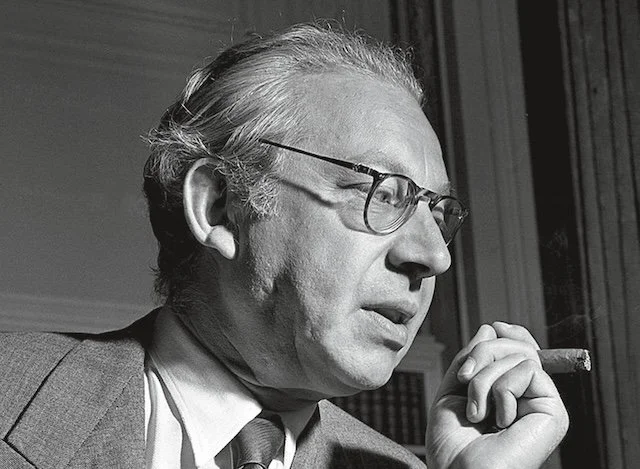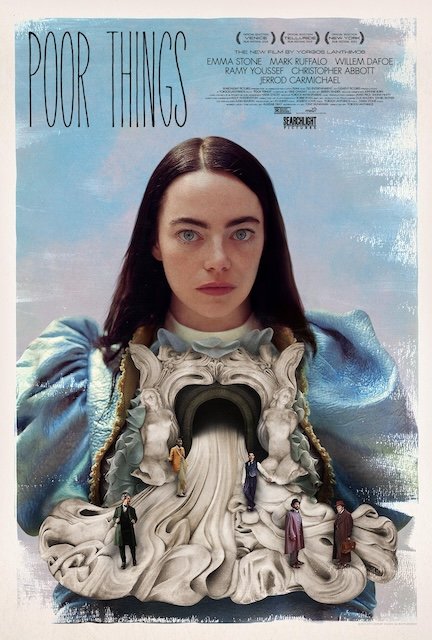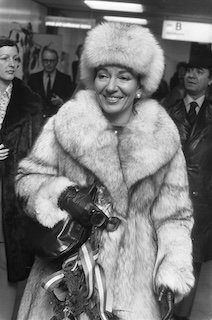Sir Alexander Korda: The Hungarian-born British Movie Mogul
zita kisgergely
Hungarians like to tell you that filmmaking is in their blood. The connection goes back to the early days of cinema, embodied by Hungarian immigrants like Adolph Zuker, who co-founded Paramount in Hollywood, and Sir Alexander Korda, who helped lay the foundations of the British Film Industry.
Alexander Korda. Picture via Imdb.
European Film Roots
Alexander Korda started his journey in movie making by writing film reviews to support his family after his father died. He quickly made a name for himself during the First World War as a screenwriter in the Hungarian film industry, having been excused from military service due to his short-sightedness. Quickly graduating to making his own films, Korda established his first production company in 1916, Corvin Film, which would go on to become one of the largest film companies in the country. Although widely recognized as a leading voice in the Hungarian film industry, Korda left Hungary in 1919 for Austria due to the political turbulence of the period. He would never return.
It was in Vienna where Korda first tasted major international success while working with Count Alexander Kolowrat’ company, Sascha-Film, on the film The Prince and the Pauper (1920). This experience sparked something in Korda; a desire to make films that had global box office appeal. The pursuit of this dream would propel him to move to Germany where he continued to make films, often with his actress wife Maria Corda (sic) in the starring role.
Mixed-Success in Hollywood
Taking up a contract with a US studio, Korda arrived in Hollywood with Maria in 1926. The pairs’ first break-out film came in the form of The Private Life of Helen of Troy (1927), a parody portraying figures of antiquity as everyday people navigating marriage, friendships and parenting. It proved to be a hit, but pigeon-holed Korda as a director of films set in exotic, foreign locales. He grew increasingly frustrated with the studio system. There were also tensions on the home front as the advent of talking pictures meant the demise of Maria’s career–her accented English precluded her from appearing in most American films. They divorced before Korda made the move back to Europe around 1930–to France, this time–where he worked for Paramount adapting Hollywood films for the French and German markets.
London Beckons
Leslie Howard in Service for Ladies (1932). Picture via BFI Southbank.
In 1931, Korda arrived in Britain to oversee the UK operations of Paramount. He injected a jolt of quality into the so-called ‘quota’ films of the time–movies made on the cheap and in a hurry to bolster home-grown production. The first film of this kind that Korda made, Service for Ladies (1932), featured one of Paramount’s rising stars, Leslie Howard–the UK born actor with Hungarian heritage who would go on to star in Gone with the Wind. A resounding hit, it was described by the weekly magazine Bioscope as, “one of the most enjoyable [films] ever to emanate from a British studio”. Interestingly, the film was a remake of one of Paramount’s successes from the silent era, which was in turn based on a novel by Hungarian writer Ernest Vajda.
Leveraging the success of Service for Ladies, Korda set up his own company, London Film Productions, which would become one of the most successful production companies in the U.K. He made several modestly budgeted films before embarking on one more ambitious in scale. It was based on the template that had brought him success back in Hollywood: The Private Life of Henry VIII. The film was a hit, grossing £500,000 within a year. Korda had arrived in Britain only three previously, but was already proving that the country could sustain an international film industry independent of Hollywood.
Korda went on to build a seven-stage studio at Denham, which would later merge with Pinewood Studios. He produced and directed many more films, including a trilogy centred on the theme of empire: Sanders of the River (1935), The Ghost goes West (1935) and The Scarlet Pimpernel (1934), as well as other movies centring on Britain’s imperial legacy. Although he escaped the financial crises in the film industry around 1937, his own extravagance in spending came under fire leading to his eventual loss of control over Denham studios. This forced him to return to Hollywood in 1940. Despite being essentially in exile for three years, Korda continued to produce and direct British-led movies during this time, many of which were made to sway American public opinion regarding the Second World War.
Links to Winston Churchill and MI6
Winston Churchill. Picture via Wikipedia.
It may seem incongruous now, but around 1934, when Winston Churchill was in the wilderness politically, Korda paid him £10,000 to write The Reign of King George V, a film to commemorate the silver jubilee in 1935. The film never got off the ground, but Korda certainly left an impression on Churchill. Writing to his wife, Clementine, Churchill remarked,
“Korda certainly gives me the feeling of a genius at this kind of thing…. I have great confidence in this man and in his flair.”
The men would later collaborate on films designed to garner American sympathy and support for the British war effort against Hitler. Particularly notable was the film, That Hamilton Woman, which cast Laurence Olivier as Admirable Nelson and Vivien Leigh (hot off the heels of Gone with the Wind) as his lover Emma Hamilton.
Beyond the fact that Korda bolstered wartime morale through his films, he also provided cover for MI6 agents in Europe by claiming they were employees of his production company. In 1942, Alexander Korda’s efforts for the cause were recognized when he was knighted by Churchill, cementing his role not only in establishing the British film industry, but as a committed ally to his adopted country.
To pay tribute to his contribution to the British film industry, the "Outstanding British Film of the Year" (an award bestowed by the British Academy of Film and Television Arts) was known as The Alexander Korda award until 2007.
Sources and further information:
Flatpack Films has years of experience servicing international brands, agencies, and production companies. Filming in Hungary is easy when relying on their knowledge of the market and ability to solve complex needs. They bring the best that Hungary has to offer in terms of unique locations, exceptionally skilled crews, top-of-the-line equipment and technical solutions. Backed by an impeccable track record, Flatpack Films has worked with world-class clients including Samsung, Samsonite, Toyota, Braun, Chivas Regal and many more.
Get in touch and learn more about Budapest film locations, Hungarian film incentives, film tax credits in Hungary and how Flatpack Films can bring your project to life through a highly bespoke approach.












































